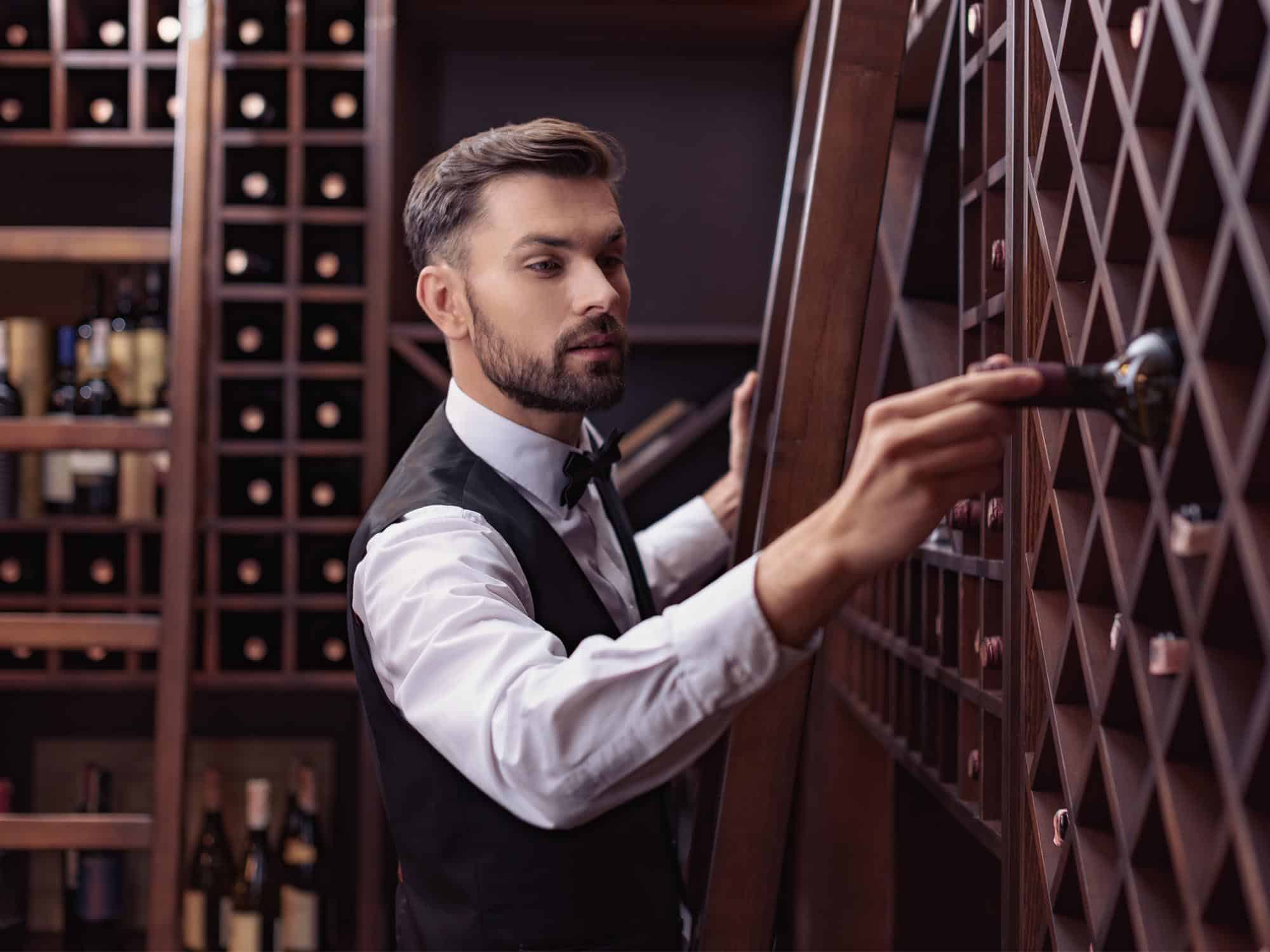Everyone
loves a good bottle of wine. Whether you’re coming home from the store with a
fresh new bottle, or opening a shipment of wines at your house, there’s always
something exciting about uncorking a brand new bottle of wine—alcoholic or not.
But,
once the bottle of wine has been opened, it quickly loses that fresh, delicious
flavor it had in the beginning. Whether you have five bottles of wine at home
or 500, you definitely don’t want your wine to go bad, or have the taste
compromised because it wasn’t stored properly. Unfortunately, many people know
very little about how to properly store wine before or after uncorking. If
you’re not sure where to start, here’s what you need to know about storing
wine.
1. Store in the dark.
One
of the most important ways to keep wine lasting long and tasting fresh is to
store it in the dark. No matter what type of wine it is, store all wines away
from light, particularly direct sunlight and fluorescent fixtures. UV rays can
cause wine to be “light struck,” which gives them an unpleasant smell and can
alter the flavor palette. While some wines do have darker bottles to protect
them—and some even have UV filters built into the glass—enough UV rays can
still penetrate and ruin the wine. If you can’t find a safe place to store wine
in the dark, keep the bottle lightly wrapped in a cloth, or put it in a box out
of the way, to avoid any direct exposure to light.
2. Keep on the side.
Whether
you have opened the wine bottle or not, be sure to store wines on their side.
Keeping bottles on their side ensures the liquid is up against the cork, which
typically keeps the cork from drying out. If wines stand upright for too long,
the cork can dry out, giving air the chance to get into the wine and spoil it.
However, if wines have alternative closures—such as screw caps, glass or
plastic corks—this isn’t entirely necessary. Methods like these are better at
keeping air from the wine. Still, storing wine bottles on their side is a
more-efficient way of storing in general, particularly if you have multiple
bottles you want to hold onto.
3. Cool it down.
The
number one enemy for a great-tasting wine: heat. Wine begins to oxidize at 75°F
(24°C). This means that temperatures higher than 70°F will age a wine more
quickly than desired. If it gets any hotter than that, the wine may get
“cooked,” which results in flat aromas and flavors. Therefore, if you want your
wine to taste perfect straight out of the bottle, the ideal storage temperature
is between 45°F and 65°F. Though it’s not quite an exact science, 55°F is often
cited as the perfect temperature for wine storage. However, be careful not to
let your wines get
too cold. Wines
can stay in the fridge for a few months, but if you want to keep them longer
than that, it might not work as well. If the temperature falls below 45°F, a
lack of moisture can dry out the cork, which allows air to seep in and damage
the wine.
4. Watch the humidity.
While
considering the storage temperature, be sure to also evaluate the humidity
level the wine is stored at. For most wines, common practice recommends storing
at around 70% humidity. With a high humidity, the cork stays moist and
minimizes evaporation of the wine. However, if you go much over 70% humidity,
you can also encourage the growth of mold and affect the wine labels.
Therefore, be mindful of where you store the wine at and use a tool like a
hygrometer to track the moisture in the area.
5. Be steady.
Finally,
be steady with how you treat the wine. Some theories suggest a lot of vibration
can damage the wine long-term by speeding up chemical reactions within the
bottle. For short-term storage, vibration isn’t
as big of an issue, but it can have some mild side effects. For
best results, be careful in how you handle the wine. Use a steady hand when
handling it, and don’t go throwing any touchdown passes with it.
Whether
you’re a wine collector or a random-bottle-every-now-and-then type of person,
wine storage matters. Depending on how you store your wine, you can
significantly impact the flavor and aromas it provides. If you want the
best-tasting wine possible, follow these tips next time you buy a bottle of
wine.

